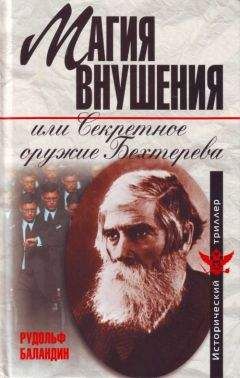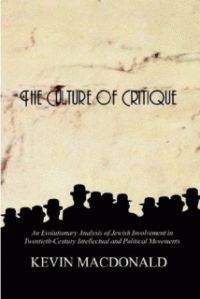Нейл Смелзер - Социология. Учебник

Скачивание начинается... Если скачивание не началось автоматически, пожалуйста нажмите на эту ссылку.
Жалоба
Напишите нам, и мы в срочном порядке примем меры.
Описание книги "Социология. Учебник"
Описание и краткое содержание "Социология. Учебник" читать бесплатно онлайн.
Книга Н. Смелзера «Социология» представляет курс лекций по общей социологии для студентов высших учебных заведений.
Достоинство книги в том, что она написана максимально доступным языком и полностью соответствует содержанию курса «Социология», как он отражён в государственном стандарте, а потому данное учебное пособие может быть базовым по этому курсу.
Книга Смелзера также предназначена для широкого круга читателей и, в первую очередь, для предпринимателей и руководителей.
На русском языке это уже второе издание.
Cardoso, F.H., & Falleto, E. [Dependency and development in latin America] (M.M. Urquidi, trans). Berkeley: University of California Press, 1979.
Carlen, P. Magistrates' courts: A game theoretic analysis. Sociological Review, 1975, 23, 347–379.
Carmichael, S., & Hamilton, С. Black power. New York: Vintage, 1967.
Carnegie Council on Policy Studies in Higher Education. 3000 futures: Tbe next twenty years for higher education. San Francisco: Jossey-Bass, 1980.
Cartter, A.M. Pbh.D.s and tbe academic labor market. New York: McGraw-Hill, 1972.
Casady, M. If you're active and savvy at thirty, you'll be warm and witty at seventy. In S.H.Zarit (Ed.), Readings in aging and death: Contemporary perspectives. New York: Harper & Row, 1979.
Chafetz., J.S. Masculine/feminine or human? An overview of sex roles. Itaca, III.: F.E. Peacock, 1978.
Chagnon, N.A. Ygnomamo, the fierce people. New York: Holt, Rinehart & Winston, 1968.
Chambliss, W.J. A sociological analysis of the law of vagrancy. Social Problems, 1964, 12, 76–77.
Cherlin, A.J. Marriage, divorce, and remarriage. Cambridge: Harvard University Press, 1981.
Chodorow, N. The reproduction of mothering: Psychoanalysis and the sociology of gender. Berkeley: University of California Press, 1974.
Christaller, W. [Central places of southern Germany] (C.W.Baskin trans.). Englewood Cliffs, N.J.: Prentice-Hall, 1966.
Churchmen vs. the bomb. Newsweek, January 11, 1982, pp. 70–71.
Cicourel A.V. Basic and normative rules in the negotiation of status and role. In D. Sudnow (Ed.), Studies in social interaction. New York: Free Press, 1972.
Clark, B.R. Educating the expert society. San Francisco: Chandler, 1962.
Clark, K.B. Blacks' SAT scores. New York Times, October 21,1982, p. A31.
Clark, R.A., Nye, F.I., & Gecas, V. Husbands' work involvement and marital role performance. Journal of Marriage and the Family, 1978, 40, 9-21.
Clark, R.L., & Spengler, J.J. Changing demography and dependency costs: The implications of future dependency ratios and their composition. In B. Herzog (Ed.), Aging and income: Programs and prospects for the elderly. New York: Human Sciences Press, 1978.
Clarke, A.C. The use of leisure and its relations to levels of occupational prestige. American Sociological Review, 1956, 21, 301–307.
Clarke, J.J. On the unity and diversity of cultures. American Anthropologist 1970, 72, 545–554.
Clausen, J.A. The life course of individuals. In M.W. Riley, M. Johnson, & A. Foner (Eds.), Aging in society: The sociology of age stratification (Vol. 3). New York: Russell Sage, 1972.
Cloward, R.A. Illegitimate means, anomie, and deviant behavior. American Sociological Review, 1959, 24, 164–177.
Cloward, R.A., & Ohlin, L.E. Delinquency and opportunity. New York: Free Press, 1960.
Cohe, A.K. Delinquent boys. New York: Free Press, 1955.
Cohe, A.K., & Hodges, H.M. Characteristics of the lower-blue-collar class. Social Problems, 1963, 10, 303–334.
Cohen, A.K., & Short, J.J., Jr. Juvenile delinquency. In R.K. Merton & R.A. Nisbet (Eds.), Contemporary Social Problems. New York: Harcourt Brace Jovanovich, 1961.
Cole, S., & LeJeune, R. Illness and the legitimation of failure. American Sociological Review, 1972, 37, 347–356.
Coleman, J.S., et al. Equality of educational opportunity. Washington, D.C.: U.S. Government Printing Office, 1966.
Coleman, J.S. The concept of educational equality. Harvard Educational Review, 1968, 38, 7-23.
Collins, R. Functional and conflict theories of education. American Sociological Review, 1971, 36, 1002–1019.
Collins, R. Where are educational requirements for employment highest? Sociology of Education, 1974, 47, 419–442.
Collins, R. Conflict sociology: Toward an explanatory science. New York: Academic Press, 1975.
Comfort, A. Sexuality in old age. Journal of the American Geriatric Society, 1974, 22, 440–442.
Converse, P.E., & Dupeux, G. Politicization of the electorate in France and the United States. Public Opinion Quarterly, 1962, 26, 1-15.
Cooley, C.M. Social organization: A study of the larger mind. New York: Scribners, 1909.
Cornish, E. The future of the family: Intimacy in an age of loneliness. The Futurist, 1979, 13, 45–58.
Coser, R.L., & Rokoff, G. Women in the occupational world: Social disruption and conflict. In R.L. Coser (Ed.), The family: Its structure and functions. New York: St. Martin's Press, 1974.
Cottle, T.J. An analysis of the phases of development in self-analytic groups. In J.J.Loubser, et al. (Eds.), Explorations in general theory in social science. New York: Free Press, 1976.
Cowan, P. Jews without money, revisited. The Village Voice, September 21, 1972, pp. 16–20; 92.
Cowan, P. Jews without money: Unifying force in an ethnic tinderbox. The Village Voice, September 28, 1972, pp. 16–22.
Cox, O. Caste, class, and race. New York: Monthly Review, 1959.
Crain, R.L., & Mahard, R.E. The influence of high school racial composition on black college attendance and test performance. Washington, D.C.: National Center for Education, Statistics, U.S. Department of Health, Education, and Welfare, 1978.
Crosbie, P.V. Introduction. In P.V.Crosbie (Ed.), Interaction in small groups. New York: Macmillan, 1975.
Crozier, M. The bureaucratic phenomenon. Chicago: University of Chicago Press, 1964.
Cumming, E., & Henry, W.E. Growing old: The process of disengagement. New York: Basic Books, 1961.
Cutler, N.E., & Harootyan, R.A. Democracy of the aged. In D.S. Woodroof & J.E. Birren (Eds.), Aging: Scientific perspectives and social issues. New York: Van Nostrand, 1975.
Dahrendorf, R. Class and class conflict in industrial society. Stanford, Calif.: Stanford University Press, 1959.
Daniels, R., & Kitano, H.H.L. American racism: Exploration of the nature of prejudice. Englewood Cliffs, N.J.: Prentice-Hall, 1970.
Dasmann, R.F. Environmental conservation. New York: John Wiley, 1972.
Davis, K. Final note on a case of extreme isolation. American Journal of Sociology 1947, 55, 432–437.
Davis, K., & Moore, W.E. Some principles of stratification. American Sociological Review, 1945, 10, 242–249.
Davis, M.S., & Schmidt, C.J. The obnoxious and the nice: Some sociological consequences of two psychological types. Sociometry, 1977, 40, 201–213.
Dawson, C.A., & Gettys, W.E. Introduction to sociology (rev.ed.) New York: Ronald Press, 1935.
Dearman, N.D., & Plisko, V.W. The condition of education. In Statistical edition, Washington, D.C.: U.S. Department of Education, National Center for Education Statistics, 1980.
Deem, R. Women and schooling. London: Routledge and Kegan Paul, 1978.
Deevey, E.S. The human crop. Scientific American, September I960, pp. 194–206.
DeLorean, J.Z., & Wright, J.P. How moral men make immoral decisions. In J.P. Wright, On a clear day you can see General Motors. Grosse Point, Mich.: Wright Enterprises, 1979.
Demerath, N.J., III, & Hammond, P.E. Religion in social context: Tradition and transition. New York: Random House, 1969.
Demos, J. A little commonwealth: Family in Plymouth Colony. London: Oxford University Press, 1970.
de Tocqueville, A. Democracy in America. New York: Knopf and Random House, 1945. (Originally published in 1835.)[28].
Dimock, M.E. Bureaucracy self-examined. In R.K. Merton et al. (Eds.), Reader In bureaucracy. New York: Free Press, 1952.
Dinnerstein, L., Nichols, R.L., & Reimers, D.M. Natives and strangers. New York: Oxford University Press, 1979.
Donosky, L., Keeping your work clothes on. Newsweek, November 1, 1982, p. 58.
Dore, R. British factory-Japanese factory: The origins of national diversity in industrial relations. Berkeley: University of California Press, 1973.
Douglas, A. The feminization of American culture. New York: Knopf, 1977.
DuBick, M.A. The organizational structure of newspapers in relation to their metropolitan environment. Administrative Science Quarterly, 1978, 23, 418–433.
Dundes, A., & Patger, C.A. Urban folklore from the paperwork empire. Austin, Texas: American Folklore Society, 1975.
Durkheim, E. The rules of sociological method. New York: Free Press, 1938[29].
Durkheim, E. [Education and society] (S. Fox, trans.). New York: Free Press, 1956. (Originally published in various sources, 1903–1911).
Durkheim, E. [The division of labor in society] (G. Simpson, trans.). Glencoe, III.: Free Press, 1964. (Originally published in 1893.)
Durkheim, E. [Suicide.] New York: Free Press, 1964. (Originally published in 1897. Also originally published in a foreign language.)
Durkheim, E. [The elementary forms of the religious life.] (J.W.Swain, trans.) New York: Free Press, 1965. (Originally published 1915.)
Easterlin, R.A. Birth and fortune. New York: Basic Books, 1980.
Easton, B. Industrialization and femininity: A case study of nineteenth-century New England. Social Problems, 1976, 24, 389–401.
Eckhardt, K.W. Religiosity and civil rights militancy. Review of Religious Research, 1970, 11, 199.
Eisenstadt, S.M. Introduction. In S.M. Eisenstadt (Ed.), Max Weber on charisma and institution building. Chicago: University of Chicago Press, 1968.
Elder, G.H., Jr. Children of the great depression. Chicago: University of Chicago Press, 1974.
Eldridge, H.T., & Thomas, D.S. Population redistribution and economic growth in United States 1870–1950 (Vol.3). Demographic analyses and interpretations. Philadelphia: American Philosophical Society, 1964.
Elkind, D. Giant in the nursery: Jean Piaget. New York Times Magazine, May 26, 1968, pp. 25ff.
Ellis, D., Grasmick, H.G., & Gilman, B. Violence in prisons: A sociological analysis. American Journal of Sociology, 1974, 80, 16–43.
Epstein, C.F. Conflict and contradiction in women's roles. In R.L. Coser (Ed.,), The family: Its structure and function. New York: St. Martin's Press, 1974.
Ericksen, J.A., Yancey, W.L., & Ericksen, E.P. The division of family roles. Journal of marriage and the family, 1979, 41, 301–313.
Erikson, E.H. Childhood and society. New York: Norton, 1950. Erikson, K.T. Everything in its path: Destruction of community in the Buffalo Creek Flood. New York: Simon and Schuster, 1976.
Evan, W.M. On the margin — The engineering technician. In P.L. Berger (Ed.), The human shape of work: Studies in the sociology of occupations. New York: Macmillan, 1964.
Farb, P. Humankind. Boston: Houghton Mifflin, 1978.
Faris, R.E.L., & Dunham, H.W. Mental disorders in urban areas. Chicago: University of Chicago Press, 1939.
Fatemi, N.S., Williams, G.W., & de Saunt-Phalle, T.L.T. Multinational corporations. New York: A.S. Barnes, 1975.
Feagin, J.R. God help those who help themselves. Psychology Today, November 1972, pp. 101–110.
Feagin, J.R. Racial and ethnic relations. Englewood Cliffs, N.J.: Prentice-Hall, 1978.
Featherman, D.L. The socioeconomic achievement of white religio-etnic subgroups: Social and psychological explanations. American Sociological Review, 1971, 36, 207–222.
Featherman, D.L., & Houser, R.M. Opportunity and change. New York: Academic Press, 1978.
Federici, N. Lezioni di demografia (3rd ed.). Rome; Edizioni E. DiSantis, 1968.
Feeley, M.M. The process is the punishment: Handling cases in lower criminal court. New York: Russel Sage Foundation, 1979.
Fennell, M.C. The effects of environment characteristics on the structure of hospital clusters. Administrative Science Quarterly, 1980, 29, 489–510.
Fergusson, A, When money dies: The nightmare of the Weimar collapse. London: William Kimber, 1975.
Ferree, M.M. Working-class jobs: Housework and paid work as sources of satisfaction. Social Problems, 1976, 23, 431–441.
Festinger, L., Ricken, H.W., & Schachter, S. When prophecy fails. Minneapolis: University of Minnesota Press, 1956.
Firey, W. Sentiment and symbolism as ecological variables. American Sociological Review, 1945, 10, 140–148.
Fischer, C.S. On urban alienation and anomie. American Sociological Review 1973, 38, 311–326.
Fischer, C.S. The urban experience. New York: Harcourt Brace Jovanovich, 1976.
Fishman, J.A. The sociology of language. In P.P. Giglioli (Ed.), Language and social context. London: Penguin, 1972. The 500. Fortune, May 3, 1981, pp. 322–349.
Flippo, C. Rock and roll tragedy: Why eleven died in Cincinnati. Rolling Stone, January 24, 1980.
Ford, W. Interracial public housing in a border city: Another look at the contact hypothesis. American Journal of Sociology, 1974, 78, 1426–1477.
Form, W.H. Occupational and social integration of automobile workers in four countries. In W.A. Faunce & W.H. Form (Eds.), Comparative perspectives on industrial society. Boston: Little, Brown, 1969.
Frank, A.G. The development of underdevelopment. Monthly Review, 1966, 18, 3-17.
Подписывайтесь на наши страницы в социальных сетях.
Будьте в курсе последних книжных новинок, комментируйте, обсуждайте. Мы ждём Вас!
Похожие книги на "Социология. Учебник"
Книги похожие на "Социология. Учебник" читать онлайн или скачать бесплатно полные версии.
Мы рекомендуем Вам зарегистрироваться либо войти на сайт под своим именем.
Отзывы о "Нейл Смелзер - Социология. Учебник"
Отзывы читателей о книге "Социология. Учебник", комментарии и мнения людей о произведении.


























